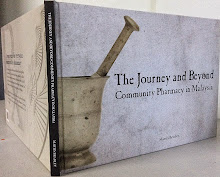
If it all seems a little too familiar, could it be that it’s because we have been here before - down this alleyway, past that dobi - seen that girl become a prostitute, that boy a thief.
In itself Slumdog Millionaire is a good enough film, good enough to be an Oscar winner for best motion picture of the year, as well as a plethora of other Oscar awards including best music (by A.R.Rahman). Rahman being an obvious choice after his association not only with the Indian film industry, but more specifically having produced music for hit films such as Mani Ratnam’s Bombay (1995).
Slumdog Millionaire, the film, was taken from the 2005 novel Q&A by Vikas Swarup - an Indian civil servant. It had a modest success, including being made into a radio play and stage musical before British film maker Danny Boyle adapted the book into the film Slumdog Millionaire.
Slumdog Millionaire follows Jamal Malik (DevPatel), a Muslim street-dwelling child, from the death of his mother during Hindu anti-Muslim riots, through his crime ridden life on the streets to his appearance on the Indian version of the TV show - Who Wants to be a Millionaire (Kaun Banega Crorepati). In the film the TV show is hosted by Prem Kumar (Anil Kapoor) but in real life was hosted by Indian megastar Amitabh Bachan and in subsequent series by the equally famous Shahrukh Khan.
Doyle’s film about slums and slum denizens is narrated by the character Jamal. Jamal is held in a police station, for alleged cheating in the quiz show - Who Wants to be a Millionaire. Jamal is initially tortured then formerly questioned, regarding his knowledge of the questions asked during the TV show. There is a supposition that no child of the streets could possibly know the answers to the questions posed, especially as India’s educated have tried and failed to claim the final prize - of twenty thousand Indian Rupees.
The majority of the film is shown in flashback, as Jamal reconstructs the events which lead to him learning the answers for the show – the hard way.
In Slumdog Millionaire we are witness to Boyle’s characteristic grittiness ala Trainspotting (1996) and 28 Days Later (2002), but this time wrapped around a Bollywood type love story between the principle character - Jamal, his elder brother Salim (Madhur Mitall) and the love of Jamal’s life Latika (Freida Pinto).
Swarup’s book is not the first concerning the street children of Bombay - Anosh Irani wrote The Cripple and His Talismans (2004) about Bombay street beggars while the Australian writer Clive James had written The Silver Castle (1996) concerned with a street urchin - Sanjay, who is bedazzled by Bollywood and tries to become part of the almost deified Bombay film scene. This proves to be a popular theme, once again taken up in the stage musical Bombay Dreams (2002), written by Meera Syal, produced by Andrew Lloyd Webber, with music by the now famous A.R.Rahman.
Nor is Danny Boyle’s film the first revealing the harsh life endured by some destitute children, when they have to fend for themselves amidst the terrors, and hardships of unsympathetic city life.
Previously there had been Luis Bunuel’s Los Olvidados (The Forgotten Ones - 1950) concerning poverty in Mexico City and later Hector Babenco’s Pixote a lei do Mais Franco (Pixote – The Law of the Weakest – 1981) about childhood poverty in Sao Paulo and Rio de Janeiro, while Mira Nair’s story about the street urchin Krishna - Salaam Bombay (1988) is a more obvious comparison for Slumdog Millionaire.
Nair’s character Krishna, like Jamal in Boyle’s film, is also a char wallah but where Krisha’s tale is one of hopelessness and despair right until the final scenes of the film, at the end of Boyle’s film the audience is transported into a typical Bollywood ending, with a small wink to trainspotting as the final scene is all singing and all dancing at Victoria Terminus – that infamous Bombay train station - to the strains of A.R.Rahman’s Jai Ho.









No comments:
Post a Comment